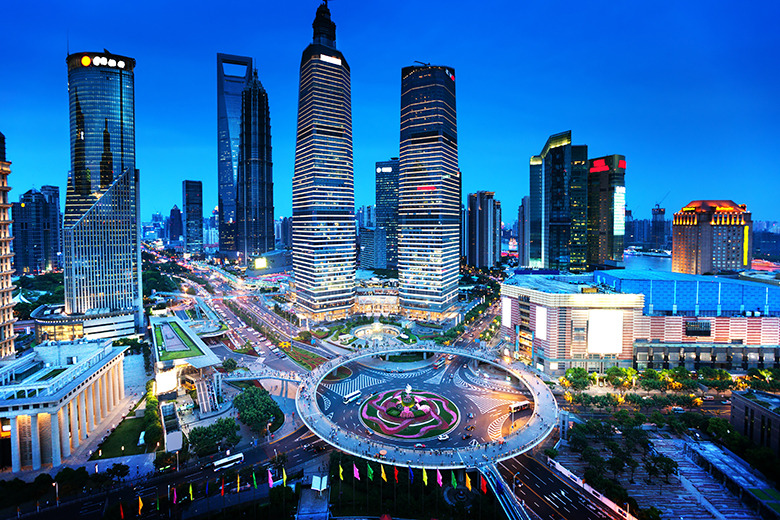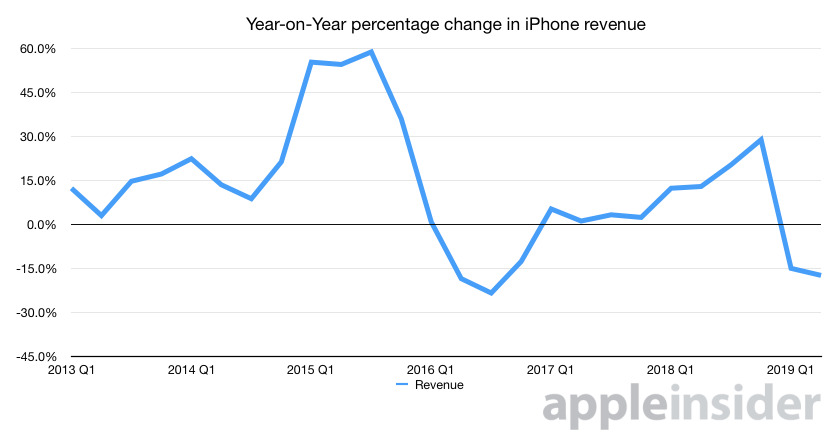Apple CEO Tim Cook sounded a positive note on China in announcing the company's March-quarter results, saying sales there are looking better.
Performance improved there versus the December quarter, and in fact strengthened towards the end of March, Cook said in a CNBC interview. He pointed to help from a sales tax cut in the country, which helped to lower the cost of products, as well as a thawing situation in the U.S.-China trade war.
"I believe that the trade relationship — I don't mean the tariff, I mean the tone — is much better today than it was in the November-December time frame," Cook said. "That affects consumer confidence in a positive way."
The fight was originally launched by U.S. President Donald Trump, who has railed against perceived imbalances in trade, jobs, and policies. A contentious issue has been forced technology transfers, in which companies wanting to operate in China are said to be pressured into handing tech over to local branches.
The company reaped $10.22 billion in the "Greater China" region during the March quarter, which includes Taiwan despite that country's contended independence. That's down from $13.02 billion a year ago.
It's unclear to what extent Chinese iPhone sales influenced the quarter, since Apple is no longer providing overall iPhone units, much less per-region numbers. Canalys research claims the company saw its "worst decline in two years," with shipments down 30 percent year-over-year to 6.5 million.
Global iPhone revenue is known to have sunk year-over-year from $37.6 billion to $31 billion. That contributed to overall revenue sliding 5 percent from $61.1 billion to $58 billion, buoyed by increased iPad, wearable, and services income.
During an investor conference call, Cook said four major factors contributed to Apple's China growth including price adjustments to account for a weaker currency, government stimulus programs, trade in and financing programs and an "improved trade dialogue" between the U.S. and China. Of note, Apple saw what it describes as record response rates for product trade-in and financing programs, particularly for iPhone, resulting in both new sales and upgrades not only in China, but worldwide.
"The trade-in looks like a subsidy, so it's a way to offset the device cost itself," Cook said of the program.
 Roger Fingas
Roger Fingas








-m.jpg)






 Charles Martin
Charles Martin
 Christine McKee
Christine McKee
 Wesley Hilliard
Wesley Hilliard
 Malcolm Owen
Malcolm Owen
 Andrew Orr
Andrew Orr
 William Gallagher
William Gallagher
 Sponsored Content
Sponsored Content








5 Comments
Ummm... what was that prior story -- just a few below -- on Analsys and their supposed take on Apple's China performance?
Maybe you should delete it. And all further reporting about the firm.
Why even bother to print a stupid analyst prediction, in which they get everything completely wrong, as usual, just a short time before the actual earnings are released and we can hear the real facts, the true story, straight from the horse's mouth?
Performance in China is on the rise relative to what? It's down on Q1 2019 and Q2 2018. But if that is the case, it shows what price cuts can do, and so proves the phones are too expensive.